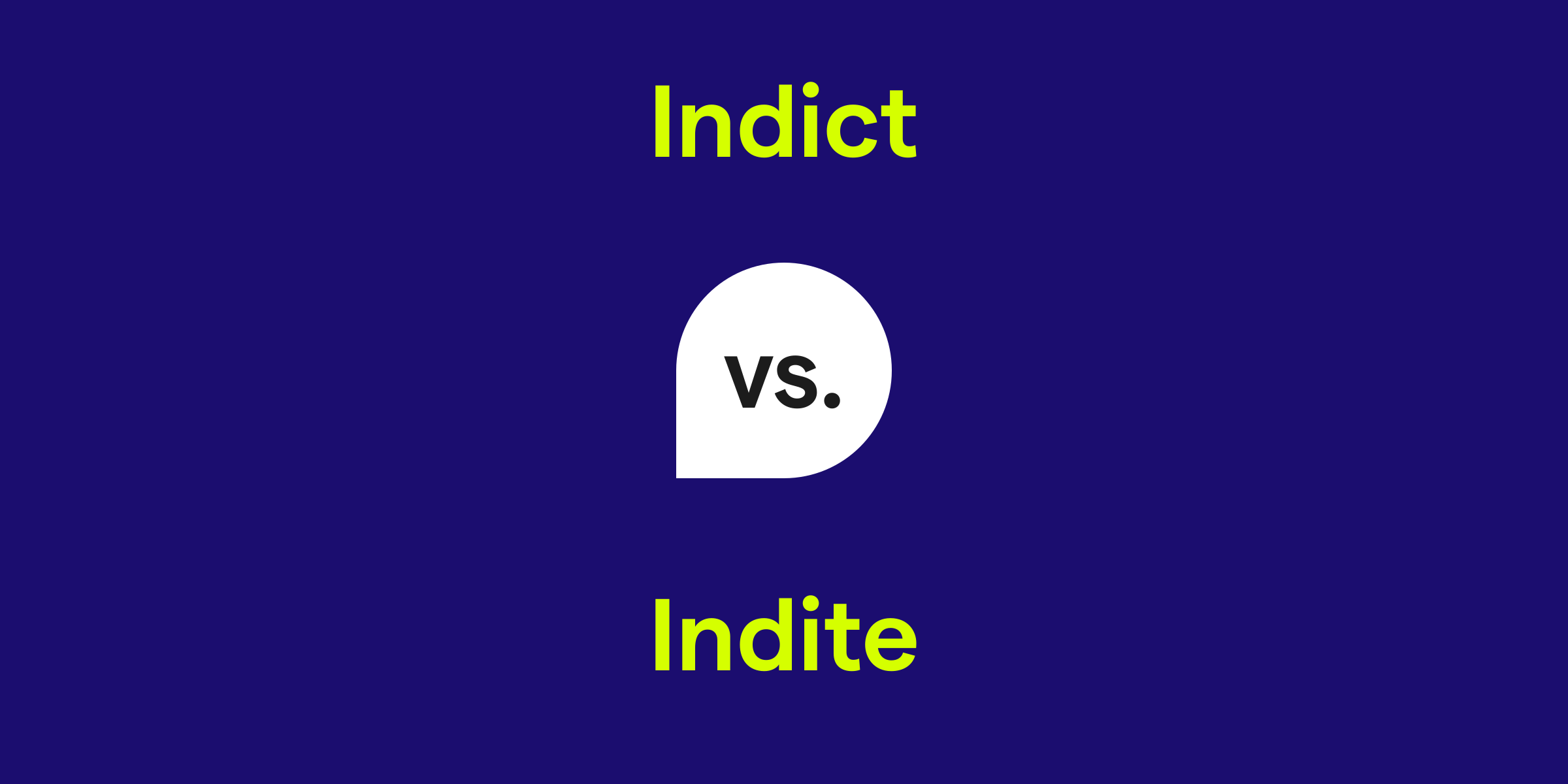Indict vs. Indite: What's the Difference?
The words indict and indite are classic examples of homophones—words that sound alike but have different meanings. Indict is a legal term that means to formally accuse someone of a crime, typically by a grand jury. 'Indite,' on the other hand, is a much less common word that means to write or to compose. The divergence in their meaning is substantial, as one pertains to legal proceedings and the other to the act of writing.

How do you use the word indict in a sentence?
You use the word indict when referring to the legal process of charging someone with a criminal offense. It often comes up in discussions of court cases and the actions of a grand jury. The use of indict signals that formal legal charges have been made against an individual.
Examples of indict in a sentence
- The grand jury decided to indict the mayor for misuse of public funds.
- Even though there was significant evidence, the individual was not indicted.
- The prosecutor presented the case to the jury, hoping they would indict.
How do you use the word indite in a sentence?
The word indite is used in the context of writing or composition. It is an archaic word that is rarely used in contemporary English, often replaced by 'write' or 'compose.' When indite is used, it usually refers to the act of creating a formal or carefully constructed piece of writing.
Examples of indite in a sentence
- The poet decided to indite a sonnet in honor of his muse.
- Scholars often indite their works with great care and precision.
- He promised to indite a love letter that would capture the depth of his affection.
Indict and indite definition, parts of speech, and pronunciation
Indict definition:
Indict is a verb that means to formally accuse or charge someone with a serious crime, especially through the decision of a grand jury.
Indict parts of speech:
Indict pronunciation:
Indict is pronounced as /in-dīt/.
Indite definition:
Indite is a verb that means to write or compose text, often with connotations of formality or artistry.
Indite parts of speech:
Indite pronunciation:
Indite is pronounced as /in-dīt/, identical to 'indict.'
Indict is a verb that means to formally accuse or charge someone with a serious crime, especially through the decision of a grand jury.
Indict parts of speech:
- Verb: The CEO was indicted on multiple counts of fraud.
- Verb: They were indicted by the evidence presented to the jury.
Indict pronunciation:
Indict is pronounced as /in-dīt/.
Indite definition:
Indite is a verb that means to write or compose text, often with connotations of formality or artistry.
Indite parts of speech:
- Verb: She indited a new play for the upcoming theater season.
- Verb: Long ago, scribes would indite documents by hand using quill and ink.
Indite pronunciation:
Indite is pronounced as /in-dīt/, identical to 'indict.'
Indict vs. indite in a nutshell
Although indict and indite sound the same, they are used in entirely different contexts. Indict is a legal term referring to formal criminal charges, whereas indite means to write or compose. These terms are not interchangeable and should be used with their specific meanings in mind. Homophones like these illustrate the intricacy of the English language and the importance of understanding context to convey the correct message.
Get AI Writing Assistance Wherever You Type
Make sure your vocabulary is on point and every punctuation mark is in the right place, no matter where you’re working. Grammarly works across more than 1 million websites and apps so you can improve your writing without copying, pasting, or breaking focus.

More Commonly Confused Words
Interest piqued? Pore (not pour) over other commonly confused words to help your writing reach peak (not peek) performance.